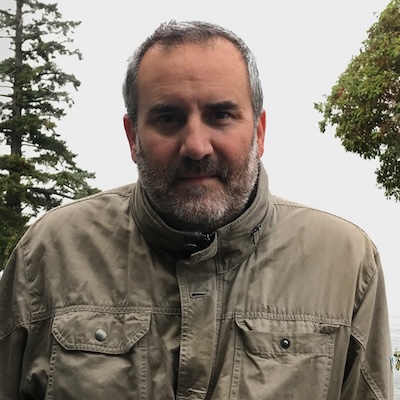Join us for an encore presentation of the acclaimed social justice project Ek Khaale with photojournalist Greg Constantine, who spent the past three years with the international Rohingya community to create this collaborative, co-participatory storytelling and visual restoration project.
Constantine will share microhistories, journeys, historical narratives, and other notes from the Ek Khaale project, which opened at Hart House at the University of Toronto and contributed to Rohingya and Burma-related events in Toronto, Ottawa, and online this October.
Click Here to Register
Returning to the West Coast of Canada, Constantine will lead a presentation and discussion on this groundbreaking project at the Foundation’s offices in Vancouver.
About the Project
For people in Myanmar, the Rohingya community’s history has been, at best, questioned, and at worst – and in reality – rejected outright. Much of the Rohingya’s visual history has been lost, confiscated, or destroyed during waves of violence, forced displacement, and genocide over the past 60 years. This destruction continues today. This has severely undermined ways in which the Rohingya preserve and share their collective memory, identity, and history with others.
In late 2021, several years after genocidal violence forced three-quarters of a million Rohingya into Bangladesh, the project Ek Khaale was launched by photojournalist Greg Constantine. Ek Khaale is the Rohingya expression for ‘Once Upon a Time.’ It is a collaborative, co-participatory storytelling and visual restoration project. It was launched in collaboration with Rohingya in refugee camps in Bangladesh, as well as those still living inside Burma, and among the diaspora in the U.S., U.K., Canada, Malaysia, and Europe.
Working with Rohingya youth and Rohingya elders, the project seeks out historical visual materials that Rohingya have miraculously preserved, secretly held on to all these years (often at great personal risk) or have salvaged and carried with them under the most unimaginable circumstances. Old photographs, family collections, documents, letters and illustrations contributed by Rohingya are combined with historical materials from a variety of public and private archives. These memories of family and evidence of historical existence as a community have been displaced and separated into pieces all over the world, just like the Rohingya community.
This project brings these materials and stories from the past back together again and activates them in the present. By exposing this unseen past, this project aims to share a visual portrait of the Rohingya most people have never seen before. It also challenges narratives and reconstructs what Burmese regimes and other communities have spent decades trying to destroy.
Constantine will talk about the history of this groundbreaking project and its significance for the Rohingya community, share several of the most important discoveries over the past three years, and discuss the stories behind them.
About Greg Constantine
 Greg Constantine is an award-winning documentary photojournalist and author. He has dedicated his career to long-term, independent projects that explore the intersection of human rights, inequality, injustice, citizenship, identity, belonging and the power of the state.
Greg Constantine is an award-winning documentary photojournalist and author. He has dedicated his career to long-term, independent projects that explore the intersection of human rights, inequality, injustice, citizenship, identity, belonging and the power of the state.
His long-term projects include Nowhere People, Exiled To Nowhere and Seven Doors. He is the author of three award-winning photography books, and his work has been exhibited in over 40 cities worldwide. Constantine has been documenting the persecution of the Rohingya community for the past 18 years. In 2021, a major exhibition of his work on the Rohingya genocide, titled Burma’s Path To Genocide, opened at the U.S. Holocaust Memorial Museum in Washington, DC. For the past four years, he has been working with Rohingya on the Ek Khaale project.
Greg received his PhD from Middlesex University and most recently was an Early Career Fellow with the Independent Social Research Foundation and Queen Mary University in London.
